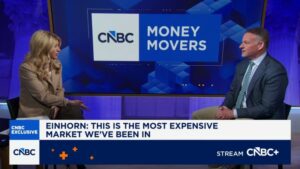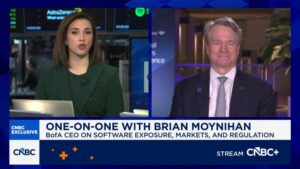Share this page:
Last month, the Bank of England (BoE) claimed that inflation is set to rise above 4% by the end of the year, fuelled by rising energy costs. Since then, Ofgem has warned of further ‘significant’ rises in the cost of energy. Already, this has raised doubts about the BoE’s prediction.
So with fears of inflation rising above 4%, here’s what I’m doing to protect my cash.
Why should you be worried about rising inflation?
Put simply, rising inflation means that the real value of your savings is effectively decreasing. In the past, savers could protect themselves by ensuring their money was stashed in a top-rated savings account paying a decent interest rate.
Yet today, no easy access or fixed savings accounts pay anything close to the current rate of inflation (3.2%), never mind the 4% rate projected by the end of the year. This is why savers should be worried.
Those on fixed incomes who do not receive a pay rise should also be worried about rising inflation. This is because their earnings are effectively being reduced in real terms.
However, for those with large fixed debts, inflation can actually be a positive thing. That’s because rising inflation effectively erodes the value of debt. This is why mortgage holders with long fixed-year deals shouldn’t be particularly concerned.
There are a number of ways to measure inflation. The government’s preferred measure is the Consumer Prices Index. For more on this, see our article on how inflation is measured.
Why is inflation rising?
Analysts often argue about the causes of inflation. However, a shortage of workers following the UK’s exit from the EU has been cited as one major reason. That’s because a shortage of workers can increase wages, pushing up inflation. Likewise, wholesale energy price rises in Europe have been cited as another big factor.
Perhaps factor that’s often overlooked is the government’s response to the Covid-19 pandemic. That’s because it borrowed vast sums of cash to fund numerous stimulus schemes. So far, the Bank of England has created £875 billion of new money, which many feel has harmed the value of cash.
How are investors reacting?
Analysts have pointed out that there have been noticeable swings in UK government bonds in recent months. These bonds and derivatives are typically seen as an indicator of how much investors predict inflation will rise by. Currently, yields on these bonds are at their highest level in over ten years.
According to Deutsche Bank, the return on these bonds suggest that the retail price index could soar to 7% annually by April 2022.
What am I doing to protect my money from inflation?
Like many other savers, I’m worried about rising inflation.
To protect me as much as possible, I’ve kept my savings in my current account which pays a small amount of interest. This gives me easy access to my cash for everyday bills. It also ensures I’m earning at least some interest on my money. I also have a small amount of cash in a Marcus savings account, which recently increased its rate of interest.
Beyond that, I save regularly into a Lifetime ISA that pays a 25% bonus on anything I save in the account. While this is much higher than the current rate of inflation, I’m aware that I’ll only be able to access the bonus if I use the money to purchase my first home, or for retirement.
I’ve stashed the rest of my money in a Hargreaves Lansdown Stocks and Shares ISA, one of the Motley Fool’s top-pick share dealing accounts. My Hargreaves Lansdown account mostly consists of stocks that I hope will give a higher return on my money than inflation. Plus, as it’s an ISA, any returns I earn up to the annual ISA limit are tax free.
The Hargreaves Lansdown platform also allows me to trade pretty easily. That said, as I’m more of a ‘buy and hold’ investor, this isn’t something I do regularly. For those looking to trade more regularly, there are other share dealing accounts with lower share dealing fees.
While I’m content with my current portfolio, should inflation continue to take off, I may consider the option of buying gold or other physical assets to cushion the blow.
Are you looking to invest?
If you’re also looking to invest, understand that there are no guarantees your returns will beat inflation. As with any investing, it’s possible you can lose your money. If you’re an investing newbie, take the time to read the Motley Fool’s investing basics guide.
Could you be rewarded for your everyday spending?
Rewards credit cards include schemes that reward you simply for using your credit card. When you spend money on a rewards card you could earn loyalty points, in-store vouchers airmiles, and more. MyWalletHero makes it easy for you to find a card that matches your spending habits so you can get the most value from your rewards.
Was this article helpful?
YesNo
About the author
Karl is a writer specialising in investing and personal finance content. He regularly contributes articles on savings, bank accounts, mortgages, and loans. He was previously a Personal Finance Writer for MoneySavingExpert.
Share this page:
Some offers on The Motley Fool UK site are from our partners — it’s how we make money and keep this site going. But does that impact our ratings? Nope. Our commitment is to you. If a product isn’t any good, our rating will reflect that, or we won’t list it at all. Also, while we aim to feature the best products available, we do not review every product on the market. Learn more here. The statements above are The Motley Fool’s alone and have not been provided or endorsed by bank advertisers. John Mackey, CEO of Whole Foods Market, an Amazon subsidiary, is a member of The Motley Fool’s board of directors. The Motley Fool UK has recommended Barclays, Hargreaves Lansdown, HSBC Holdings, Lloyds Banking Group, Mastercard, and Tesco.
This post was originally published on Motley Fool







